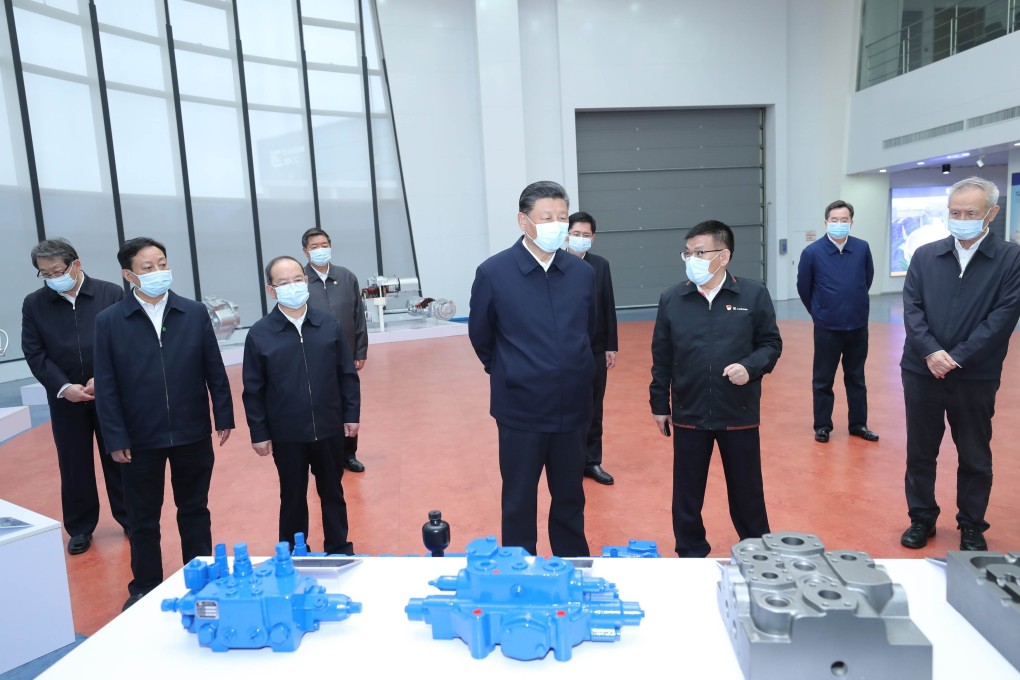Xi Jinping tries to reassure China’s private firms of their place in nation’s economic development
- During a trip to the Guangxi Zhuang autonomous region, President Xi says private sector can develop their businesses ‘boldly and with confidence’
- Xi’s message comes as the central government has ramped up control over the countries’ millions of private firms, in an effort to exert greater state influence over economic development

President Xi Jinping has sent a strong message to the nation’s private sector amid rising concerns about the government’s oversight intentions, declaring that they can develop their businesses “boldly and with confidence”.
“We encourage the development of private businesses. When they encounter difficulties, the [Chinese Communist] Party and the state will support them. And when confusion arises, guidance will be offered, with the hope that they can develop boldly and with confidence,” Xi said on Monday during his trip to the southern Guangxi Zhuang autonomous region.
To that end, during his visit to a food-processing centre in the city of Liuzhou, Xi conceded that it was no easy task developing small rice-noodle operations into such a large and vibrant industry there, the official Xinhua reported.
Xi’s message came at a time when the party has ramped up control over the countries’ millions of private firms, in an effort to exert greater state influence over economic development. But this has triggered anxiety and concerns among many business owners in the private sector.
The private sector is critically important to China’s economy, accounting for half of the country’s tax revenue, 60 per cent of its gross domestic product (GDP), and 80 per cent of urban employment. But in recent years, there has been a growing perception that the Communist Party strongly favours the state sector as the cornerstone of the economy.